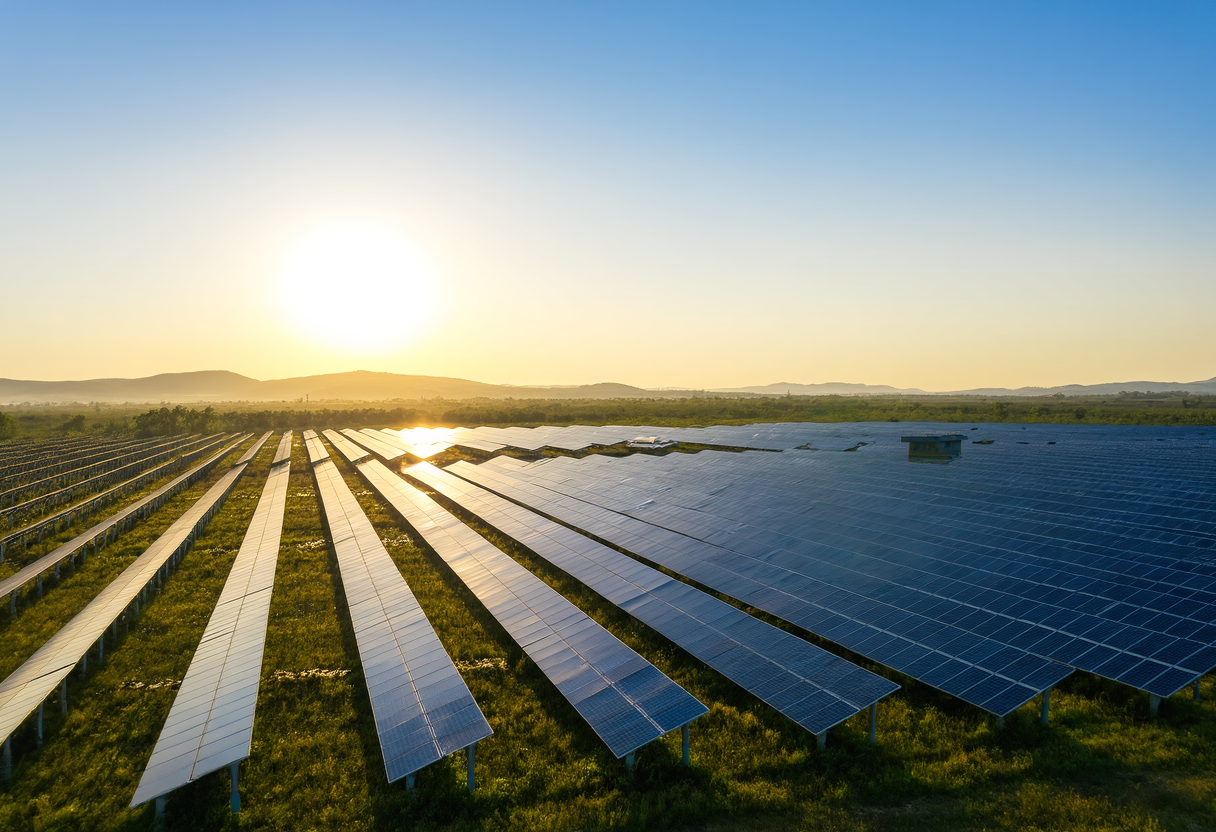The Rise of Solar Panels: Transforming Energy for a Sustainable World!
The rise of solar panels marks a significant transformation in the global energy landscape. This article delves into their technological advancements, environmental benefits, and the challenges faced during widespread adoption. With the urgency to reduce carbon emissions, solar panels emerge as a key player in creating a sustainable world, promising an environmentally friendly energy future.
The Technological Advancements of Solar Panels
Solar panels have undergone remarkable technological improvements in recent years, dramatically enhancing their performance and efficiency. Technological advancements such as thin-film manufacturing and photovoltaic cell innovations have revolutionized how solar panels convert sunlight into usable energy. Thin-film solar panels, for instance, are lightweight and flexible, making them suitable for a variety of applications, including building-integrated photovoltaics. These innovations enable solar panels to harness energy more effectively across diverse environments, expanding their applicability. Additionally, developments in panel design, such as bifacial modules, allow for energy capture from both sides of the panel, further maximizing efficiency. As technology evolves, it is evident that solar panels are increasingly adaptable to meet the growing energy demands of our society. Moreover, smart grid technologies now facilitate seamless integration of solar energy into existing infrastructure, paving the way for a cleaner energy future.
Environmental Benefits of Solar Panels
The environmental benefits of solar panels are profound, highlighting their role as a pivotal solution to combat climate change. By harnessing sunlight, solar panels offer a renewable energy source that significantly reduces greenhouse gas emissions compared to fossil fuels. Their accessibility and decreasing installation costs make them attractive options for many homeowners. Additionally, solar energy contributes to air quality improvement, possessing a minimal environmental footprint during operation. The adoption of solar panels translates to cleaner air and healthier communities. However, it's essential to consider the lifecycle of solar panels, including sustainable manufacturing practices and proper recycling processes. Addressing these factors ensures that the environmental benefits of solar panels are maximized while minimizing any adverse effects.
Challenges Associated with Solar Panel Widespread Adoption
Despite solar panels' clear advantages, several challenges hinder their widespread adoption. One significant barrier is the intermittency of solar energy; the unpredictable nature of sunlight can lead to inconsistent energy output. Advancements in energy storage technologies, such as lithium-ion batteries, are crucial for addressing this challenge and ensuring reliability. Moreover, another pressing issue is the structural limitations of some buildings, which may not be suitable for solar panel installations. To overcome these barriers, comprehensive policy frameworks and incentives are essential to encourage businesses and homeowners to invest in solar energy solutions. Education plays a key role in fostering acceptance and awareness of solar technology. Initiatives that inform the public about the benefits and feasibility of solar panels can significantly impact their adoption rates.
The Economic Impact of Solar Panels
The economic impact of solar panels extends far beyond individual cost savings. As the demand for solar installations grows, so does job creation within the renewable energy sector. From manufacturing to installation, the solar energy industry offers a wealth of employment opportunities, contributing substantially to the economy. Furthermore, ongoing trends indicate that investing in solar panels can enhance property values, as eco-friendly homes become more desirable among buyers. For communities that implement solar energy programs, the economic returns can be significant, with reduced energy costs translating into increased spending in local economies. Notably, the perception of solar panels as costly investments is shifting, with their potential for long-term savings and benefits becoming increasingly recognized. Ultimately, the economic advantages of solar panels reinforce their role in fostering a sustainable future.
The Societal Shift Towards Solar Panels
As awareness around environmental issues intensifies, there's a societal shift towards embracing solar panels as a primary energy source. Communities across the globe increasingly recognize the urgent need for renewable energy and the role solar panels can play in that transition. The democratization of energy production is gaining traction, allowing individuals to take an active role in their energy choices and promoting energy independence. This movement toward sustainability fosters community engagement, as citizens advocate for better energy policies and integrate solar solutions into their daily lives. Furthermore, the push for clean energy aligns with broader social initiatives aimed at reducing carbon footprints, ultimately contributing to cleaner, healthier living environments. Such collective efforts highlight the transition towards solar panels as not just an energy solution, but a movement toward a more sustainable future.
Conclusion: Embracing Solar Panels for Future Generations
In conclusion, the rise of solar panels signifies a transformative shift in energy production, aligning with global objectives for sustainability and environmental stewardship. The combination of technological advancements, economic benefits, and growing societal support indicates a promising future for solar panels as mainstream energy solutions. As we look ahead, it is crucial to continue addressing the challenges associated with solar energy adoption and strive for innovations that enhance efficiency and accessibility. By embracing solar panels, we not only secure a greener environment for current generations but also pave the way for future generations to thrive.
